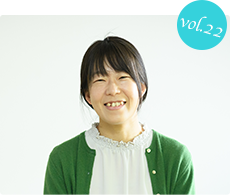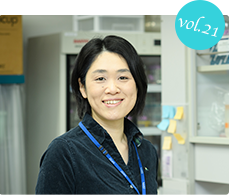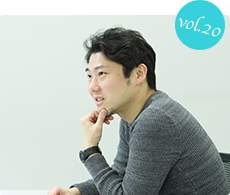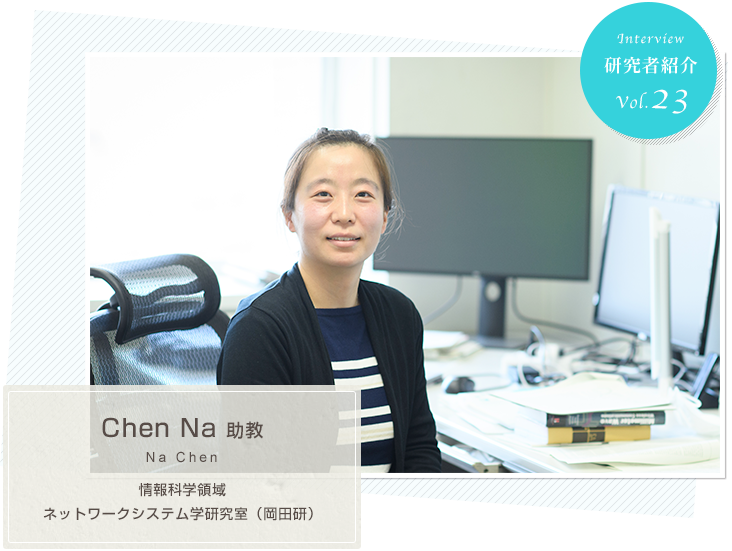
![]()
She received her Ph.D. degree in information and communication engineering from Beijing University of Posts and Telecommunications in 2017. Since the same year, she has been a postdoctoral researcher specializing in electronic science and technology at Beijing University of Posts and Telecommunications, and has been an assistant professor at Nara Institute of Science and Technology since October 2018. Her research interests include fiber optic wireless and large-scale MIMO signal processing. Her current research interests include high-speed signal transmission technology in 5G/6G heterogeneous scenario.
Why did you become a researcher?
As an undergraduate, I majored in telecommunications at Beijing University of Posts and Telecommunications (BUPT), which is a leading university in China in the field of information and communications and will have a 5G network on campus from 2019.
I became interested in physics in high school and have been good at it ever since. I believe that one of the fields of science is physics, and telecommunications is a part of physics. Telecommunications is one of the most practical topics in physics. Telecommunications is also a field of engineering.
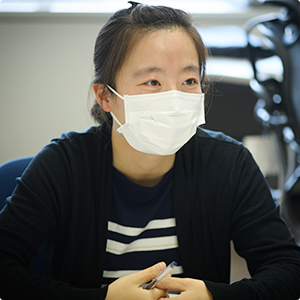
The reason why I wanted to become a researcher is because I thought my personality was suited for it. I am rather introverted. I was also influenced by the teachers and professors I had in junior high school, high school, and college, whom I respected a lot. I hope to become a scholarly researcher like them one day. My greatest joy in research is discovering new knowledge that will lead to development in the unexplored field of 5G and 6G. I enjoy discovering new knowledge. Of course, it is not easy to turn research into a career, especially as a university faculty member. On the research side, you need to be able to write papers and manage projects, and on the teaching side, you need to be able to teach students. Project management and teaching need to be done in collaboration with colleagues and students, and I would like to develop my skills in this area from now on.
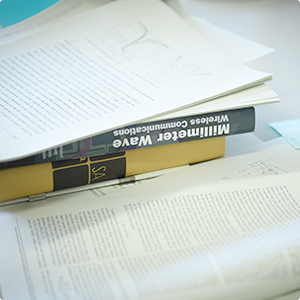
After finishing my Ph.D. program, I did a postdoctoral fellowship at BUPT for about two years, and I arrived at NAIST in 2018. I originally knew Dr. Okada, the professor of my current lab, because he had visited BUPT. Dr. Okada also emailed my advisor at the time about my current position, and after comparing it with other positions, I decided to apply to NAIST.
I was not too worried about coming to Japan to find a job. I had studied abroad in the U.S. for a year during my Ph.D. program, which was a very good experience, so I was not so nervous about coming to Japan. China and Japan are not that close, but I thought it would be possible to come and go. Now, with COVID-19, it is not so easy. Also, in terms of culture, China and Japan are easy to understand because of the proximity in writing and food. Dr. Okada, my colleagues, Japanese students, and international students were very kind to me when I first arrived, and I think I have now become accustomed to this university.
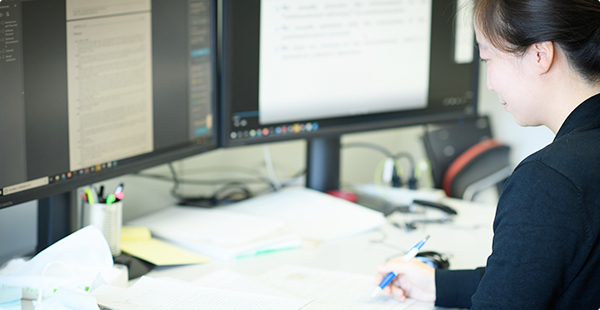
Balancing research and life
My daily life is very simple. I live in the staff dormitory, which is convenient because I do not have to take public transportation.
I get up around 7:30 in the morning, come to the lab around 9:30, and return to the dormitory for lunch around noon. I then return to the lab around 2:00 p.m., and if I have no urgent work to do, I leave around 5:30 p.m. When I get home, I check my e-mail.
I got married about a year ago after returning to Japan temporarily, and now I live with my husband in the staff dormitory. My husband wanted to find a job after coming to Japan, but covid-19 made it difficult, so he is now working online and studying Japanese. In China, housework and childcare are shared equally between men and women, and if the burden is unequal, the one who does not do the housework and childcare is blamed. We also share the work very normally.
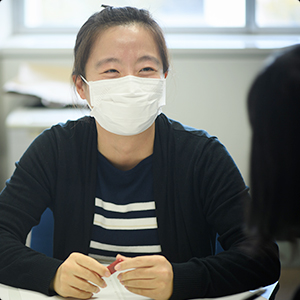
On Tuesday evenings and Saturday mornings, my husband and international students attend Japanese language classes at Ikoma City. The classes are on campus, free, and run by volunteers, and until the covid-19 emergency was declared, we also attended Japanese classes offered by Nara City.
I use the bus for my daily shopping. Buses are very expensive in Japan. It seems to be as expensive as taxi fare in China.
Last year, I applied for an international driver's license for my car, but it was not accepted because there seemed to be a problem. It didn't seem to be a serious problem, but the counter wouldn't accept it because of incomplete paperwork.... We both already have a driver's license and would like to change to an international driver's license. We plan to reapply next month. It is cheaper to buy a car in Japan than in China. In big cities in China, there are restrictions on issuing license plates and it takes longer.

On the research environment at NAIST
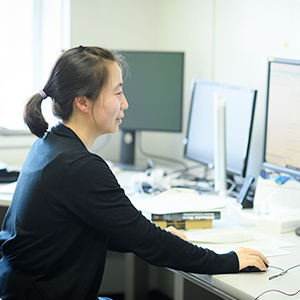
I feel that NAIST has a good research environment because it is well equipped with research facilities and the people around me are kind and helpful. Also, my home province of Heilongjiang is in the northeastern part of China, and it is very cold in January, for example, minus 23 degrees Celsius, so I feel comfortable in Japan. I like the environment around the university, especially when I come home from cities like Osaka, because of the fresh air and beautiful nature.
I feel well supported in my daily work. I would like to get more involved with my Japanese friends and faculty, learn more about the work, and learn more Japanese. However, because of covid-19, it is very difficult for me to go out and interact with people. Sometimes I feel depressed, but I feel that I have to work harder and achieve more.
I am currently participating in the admissions committee, and I have the opportunity to work with members from other labs, and they are all very nice to me. Other than that, I don't have many opportunities to communicate with other labs and basically have discussions with members of the same lab.
It is a little inconvenient that there are restrictions on the use of academic journal content. However, I understand that there are restrictions because I think there is a budget problem.
We have not received any grants from any source this year, but we have applied for both corporate grants and Grants-in-Aid for Scientific Research to obtain external funding for the next fiscal year. It is very helpful to have professors and URAs review our application documents when we apply for Grants-in-Aid for Scientific Research.
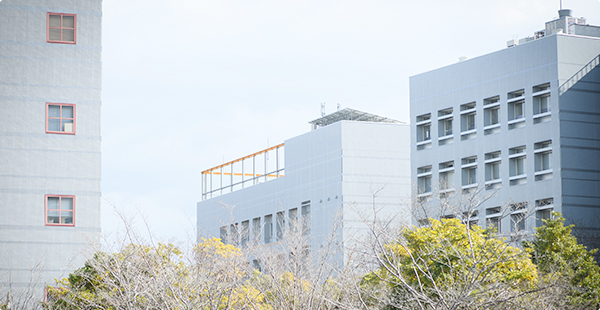
(January 2021)

-
2021.3 updated
Division of Biological Science
-
2021.3 updated
Division of Materials Science
-
2020.3 updated
Division of Materials Science






